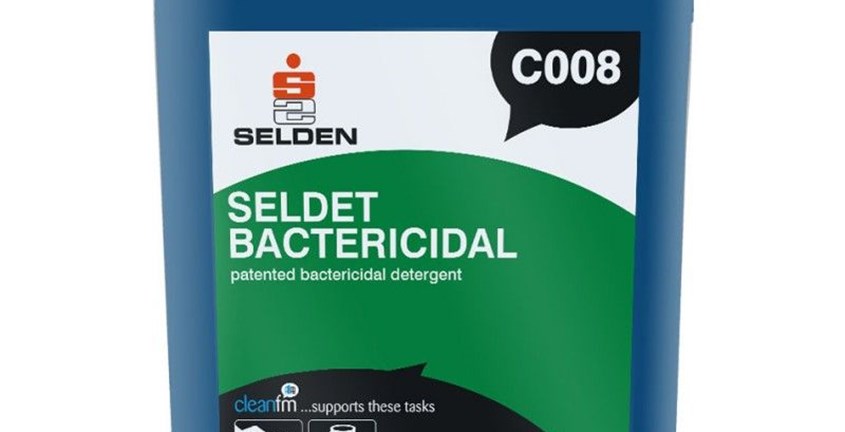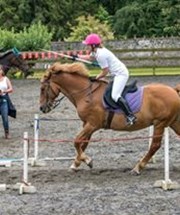Why is BSEN 1276 not a fit for purpose accredditation for sanitising my dishes?
As Astral Hygiene are so well versed in food hygiene regulations we can now offer advice and support regarding the safe and most effective use of our products including Cleaner Sanitiser (BSEN 1276) for use on Hard Surfaces, and Bactericidal Detergent (BSEN 1040) for use in water to ensure safe food preparation.

What exactly is BS EN 1276?
BS EN 1276 is a European Standard which ensures that the bactericidal activity of chemical disinfectants are effective against controlling harmful micro-organisms.
All BS EN 1276 chemicals have been tested to ensure they are killing 99.999% of bacteria within 5 minutes. Many of our products here at Astral Hygiene have a contact time of only 30 Seconds, which is a more workable time than 5 minutes in a commercial kitchen. To ensure you are using a BS EN 1276 product correctly and to properly make sure that your product is BS EN certified and it must be used on hard surfaces. All BS EN 1276 products must kill bacteria such as MRSA, salmonella, E. coli, flu virus (H1N1) and Pseudomonas Aerginosa.
Why is BSEN 1276 not a fit for purpose accredditation for sanitising my dishes?
What exaclty is BS EN 1040?
In water, the test is entirely different, because the environment in which the test is being conducted is not a hard surface. BSEN 1040 is the test that must be passed to demonstate chemical effectiveness in water. This European Standard specifies a test method and the minimum requirements for basic bactericidal activity of chemical disinfectant and antiseptic products that form a homogeneous, physically stable preparation when diluted with water. So this means, any bactericidal detergent that is claiming to be tested against of even passing BSEN 1276, this product is not fit for it's intended purpose - for sanitising dishes, ergo BSEN 1276 is only effective on hard surfaces, and not proven to kill bacteria when heavily diluted in water.
How do I prevent cross contamination?
It is really important that you clean and disinfect all surfaces, chopping boards and equipment thoroughly before and after use.
Hand washing is of paramount importance in conjunction with good hygiene and always keep in raw and ready to eat foods separate. The food standards agency are very concerned about the reduction of the risk of E. coli cross contamination.The disinfection of surfaces can be accomplished using a BS EN 1276 spray. This has a contact time of 30 seconds meaning it will kill most harmful strains of bacteria dead within 30 seconds.
What is the importance of Cleaning as you go?
There is a lot to be said for cleaning as you go because you can use our cleaner sanitiser to sanitise and clean as you go. If you spray then wipe (step 1) the sanitiser on sideboards, then spray and leave it for 30 seconds and then simply wipe it off that area will be sanitised. Do make sure which ever chemical you procure it does say on the back BS EN 1276 or BS EN 13697 and this will keep your environmental health officer very happy if used appropriately.
What BSEN chemicals do I use when washing dishes?
When you are washing dishes you are removing the soil, however it is important to note that you’re not actually killing the bacteria when you wash in this way. To kill the bacteria need to wash the services at a high temperature and maintain that temperature for some time - thermal disinfection. The trouble is washing dishes at a high temperature for a prolonged period of time is it really going to work with you washing with your hands. This is why a commercial dishwasher is the most effective in sanitising your dishes. All environmental health officers and the food Standards agency would advocate that a commercial dishwasher is the best way to sanitise your dishes. Where the dishwasher is unavailable or impractical there is an alternative way.
To obtain the correct level of disinfection you must use a BS EN accredited product to sanitise your dishes. There is a distinction between washing your dishes and sanitising your dishes. We’ll tackle washing your dishes first. Many of us know this is done through using a simple detergent. The sanitisation process is a little more tricky and you must be accurate in both the amount of water that you put in your sink (you must know how many litres it holds) versus the amount of chemical that is introduced into that liquid.
There is a great deal of confusion around which BSEN (British Standards European Norm) to use when sanitising dishes, and this isn't being helped with the confusion around which BSEN tests for what. Let me explain.......
BSEN 1276, is a test which us undertaken on a hard surface ONLY. This test is undertaken on a hard surface, in which the amount of bacteria on that hard surface is firstly assessed, then sanitised and then assessed again. So for a product to be certified BSEN 1276, it must be used on a hard surface, and not in water (this is important - stay with me here!). For a chemical product to Pass BSEN 1276, it must achieve a bacteria reduction of 99.999% - this is the pass rate. Any product that says, tested against - doesn't mean it has passed BSEN 1276, and any product that says kills 99.99% of bacteria likely hasn't passed BSEN 1276 - because if it had passed, the manufacturer would say it has passed.
In water, the test is entirely different, because the environment in which the test is being conducted is not a hard surface. BSEN 1040 is the test that must be passed to demonstate chemical effectiveness in water. This European Standard specifies a test method and the minimum requirements for basic bactericidal activity of chemical disinfectant and antiseptic products that form a homogeneous, physically stable preparation when diluted with water. So this means, any bactericidal detergent that is claiming to be tested against of even passing BSEN 1276, this product is not fit for it's intended purpose - for sanitising dishes, ergo BSEN 1276 is only effective on hard surfaces, and not proven to kill bacteria when heavily diluted in water.
The bactericidal detergent which we recommend here at Astral Has a dilation rate of one part chemical to 100 parts water and is BSEN 1040. So to illustrate that a bit more clearly that would be in a 20 litre sink you would put 200ml of chemical. To ensure you have the correct delusion to kill 99.999% of bacteria. You must also follow the remainder of the instructions on the back of the bottle which detail submerging your dishes in the water for five minutes, pulling them out of the solution and putting them on the newly sanitised draining board to dry. Never wiping them with a tea towel and putting them away on a sanitised surface.
Can I use bleach to clean a chopping board?
In essence the answer to this question is it a definite no. Bleach is a Caustic non-food safe chemical, which will taint your food and potentially leave behind a dangerous residue on the surfaces that you prepare food for your customers.
I only have a small cafe, are these regulations pertinent to me?
Any food handling operative must comply with the guidance on the Food Standards Agency website and they all must use appropriate chemicals to reduce the contamination of E Coli in the food that they serve to their customers.








